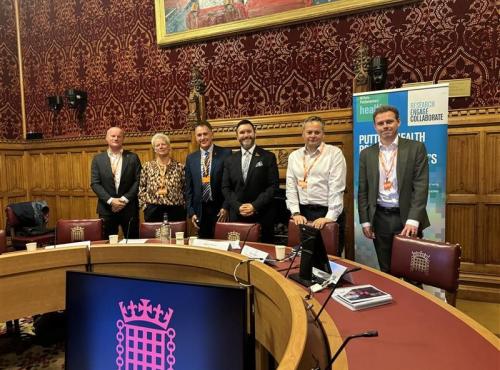Manifesto Watch – What the parties are saying about data policy
In this blog, policy manager Jack Tindale talks us through how the manifestos and potential new government will impact the data industry.
It is inevitable, even during a ‘normal’ election campaign that digital and creative industries will tend to receive the short shrift in terms of coverage and policy announcements. With this election being heavily tilted towards Brexit, the struggle for air time is even more pronounced.
With the Conservatives, Labour and Liberal Democrats all offering very different approaches to finding a resolution to Brexit, it is inevitable that this election will be the most consequential for the country in decades.
Away from more general approaches across the board, the parties have started to recognise the importance of specific data and digital policies. There is an acknowledgement by most major parties that data-driven technologies will be essential in facing the challenges and meeting the opportunities facing the country. Politicians from across the political divide have made much of the so-called Fourth Industrial Revolution and the central role that data-driven technologies will have in bringing about the next step-change in industrial policy.
In Trust, Transparency, Tech, a landmark report launched in May 2019 by the All-Party Parliamentary Group on Data Analytics (APGDA), the Group made a number of key recommendations for how data-driven technologies could be developed in an ethical fashion.
The Conservatives have set out an intention to invest in computing and data systems, with a particular focus on healthcare data as well as reviewing the definition of R&D so that important investments in cloud computing and data, which boost productivity and innovation, are also incentivised.
The Liberal Democrats have referred to a number of the points raised in our report, including recognising the role to be played by the new Centre for Data Ethics and Innovation to provide guidance around the use of data in responsible ways. It also calls for the establishment of a citizens’ assembly to determine when it is appropriate for government to use algorithms in decision-making. Both of these represent key points made by the APGDA in informing the debate about this vital area.
Although the Labour manifesto is less equivocal about the use of data in the public sector, it notes the use of it in the NHS by name and pledging to protect such information from being “exploited” by international bodies and pharmaceutical companies, but nevertheless acknowledges the huge benefits that such data sources have in developing new and innovative medical treatments. The manifesto also calls for the establishment of a “Charter of Digital Rights” aimed at empowering the public, as well as reiterating calls aimed at protecting children from online harms.
Whilst far from front-and-centre of the political sphere, it is nevertheless positive that all three major nationwide parties are considering the use of data as part of their campaigns. However, the sector must continue to speak with one voice to make the case for the safe and proper use of data across all industries and all political activities.



